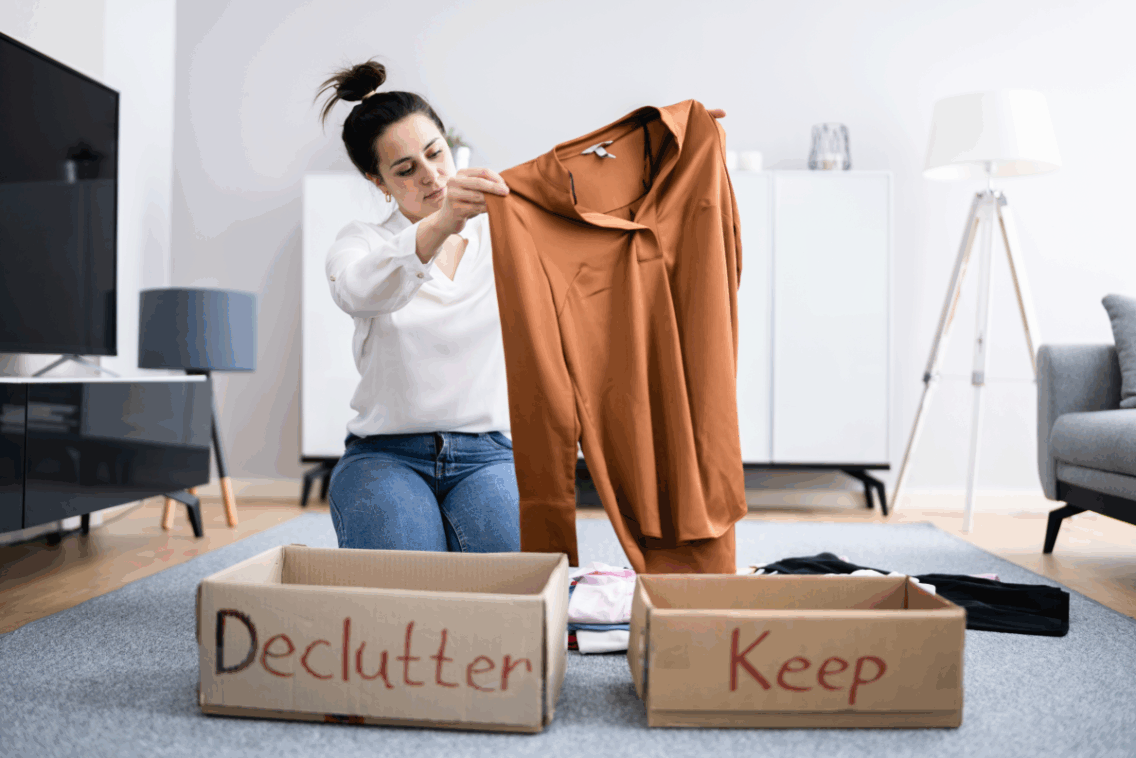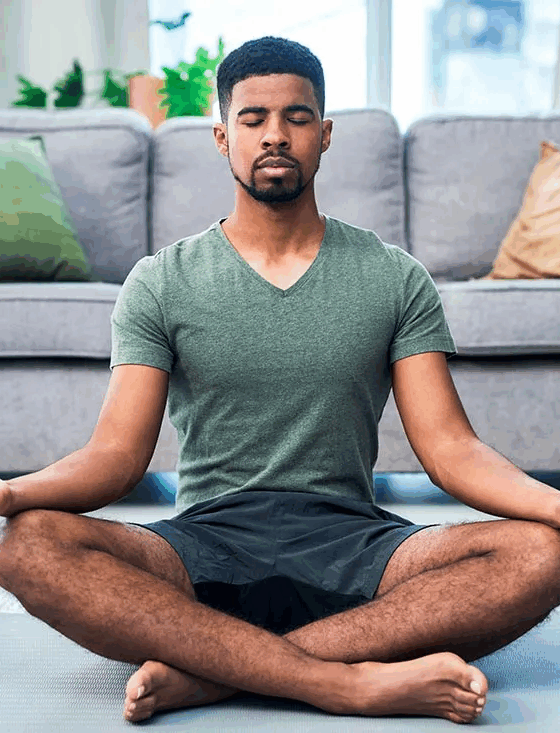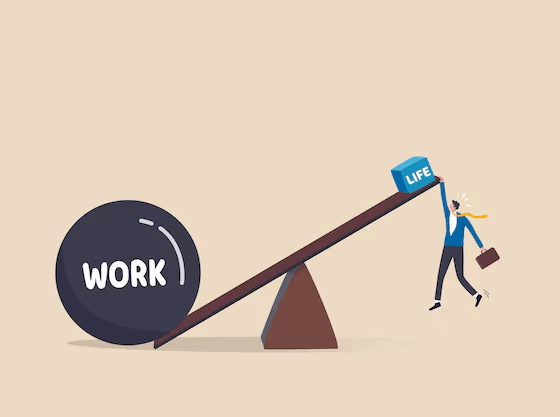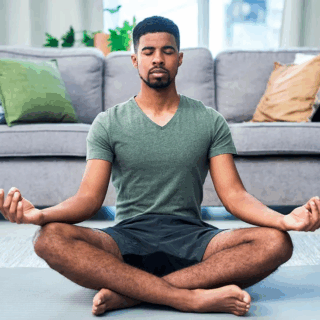How to Declutter Your Life: A Simple Guide to More Peace and Less Stress

Life today is busy, noisy, and often overwhelming. Between work responsibilities, social commitments, notifications, and the physical mess at home, it’s easy to feel like life is out of control. That’s where decluttering comes in—not just your home, but your mind, schedule, relationships, and even your digital space.
Decluttering your life doesn’t mean becoming a minimalist or throwing everything away. It’s about removing what no longer serves you and making room for what truly matters. In this article, we’ll explore simple and practical ways to declutter different areas of your life—and feel lighter, more focused, and happier because of it.
1. Start With Your Physical Space
Let’s begin with the most obvious area: your home.
Why It Matters:
A cluttered environment often leads to a cluttered mind. Studies show that messy spaces increase stress and reduce productivity.
How to Declutter Your Home:
- Pick one area at a time – Don’t try to tackle the whole house in one day. Start with a drawer, a closet, or your desk.
- Use the 3-box method – Label three boxes: Keep, Donate, Throw Away. Touch each item and decide its box.
- Ask yourself: Have I used this in the last year? Does it bring me joy? If not, let it go.
- Digitize where possible – Papers, bills, old notebooks—scan and store them digitally.
- Create a routine – Declutter regularly, not just once a year.
Decluttering your space creates a calm, peaceful home where you can relax and recharge.
2. Declutter Your Mind
Mental clutter is often harder to notice than physical mess, but it can weigh even heavier.
Signs of Mental Clutter:
- Overthinking
- Constant worrying
- Trouble focusing
- Feeling overwhelmed
How to Clear It:
- Journaling – Spend 5-10 minutes each morning writing down your thoughts. It helps clear the noise.
- Meditation or deep breathing – Even just 5 minutes a day helps reset your brain.
- Limit information intake – Too much news, social media, or content creates overload. Take breaks.
- Practice saying “no” – You don’t have to say yes to everything. Protect your peace.
A clear mind helps you stay focused, make better decisions, and feel more at peace.
3. Simplify Your Digital Life
We spend hours every day online, so digital clutter can seriously affect our productivity and mood.
How to Declutter Your Digital Space:
- Clean your inbox – Unsubscribe from newsletters you never read.
- Organize your files – Delete duplicates, rename folders, and sort by importance.
- Uninstall unused apps – If you haven’t opened it in 3 months, you probably don’t need it.
- Turn off notifications – They’re distracting and unnecessary most of the time.
- Set screen time limits – Use app timers to reduce mindless scrolling.
Decluttering your devices makes them tools for growth instead of distractions.
4. Reevaluate Your Schedule
Many of us feel like we never have time, but the truth is, we often fill our days with things that don’t matter.
How to Declutter Your Time:
- Track your day – Write down how you spend each hour. You’ll be surprised where your time goes.
- Identify time wasters – Are you saying yes to too many social invites or unnecessary meetings?
- Prioritize – Focus on tasks that align with your goals and values.
- Add buffer time – Don’t overbook yourself. Leave space between commitments to breathe.
- Schedule rest – Make downtime a non-negotiable part of your calendar.
Remember: Time is your most valuable resource. Spend it wisely.
5. Let Go of Toxic Relationships
Sometimes, the people around us contribute to our emotional clutter.
Signs of a Toxic Relationship:
- Constant negativity
- Drama and manipulation
- One-sided effort
- Feeling drained after interacting
How to Declutter Your Social Circle:
- Set boundaries – Limit time with people who bring stress or negativity.
- Communicate clearly – Express your needs and limits with kindness.
- Surround yourself with support – Spend more time with those who uplift and encourage you.
- Let go when needed – Some relationships aren’t meant to last forever. And that’s okay.
Letting go of toxic people opens space for healthier, more fulfilling connections.
6. Declutter Your Habits and Goals
Many of us chase too many goals at once or hold onto habits that no longer help us.
How to Declutter Your Habits:
- Do a habit audit – List your daily habits. Which ones support your growth? Which ones drain your energy?
- Choose one goal at a time – Focus on one meaningful goal instead of juggling five.
- Replace bad habits with better ones – For example, replace evening scrolling with reading or walking.
- Use habit trackers – It helps you stay consistent and see your progress.
Simplifying your habits leads to more energy, clarity, and results.
Final Thoughts
Decluttering your life isn’t a one-time project—it’s a mindset. It’s about choosing simplicity over chaos, quality over quantity, and intention over impulse. You don’t have to do it all at once. Start small. Pick one area of your life. Tidy it up. Then move on to the next.
As you do, you’ll feel the stress melt away, the noise quiet down, and your joy start to return.
Decluttering your life isn’t about having less—it’s about making room for more of what truly matters.
Frequently Asked Questions (FAQs)
1. What’s the best place to start when decluttering my life?
Start with your physical space—like your bedroom or closet. Visible progress can build motivation. From there, move to digital and mental decluttering.
2. How often should I declutter?
Decluttering isn’t a one-time job. Create a routine—weekly, monthly, or seasonally—to keep everything under control.
3. How do I stay motivated to keep my life clutter-free?
Focus on how decluttering makes you feel: calmer, lighter, and more in control. Celebrate small wins and remind yourself why you started.
4. What if I have trouble letting go of things or people?
It’s normal to feel attached. Ask yourself: Is this helping me grow? If not, it might be time to let go—gently and respectfully.
5. Can decluttering help with anxiety and stress?
Absolutely. A clean, organized environment and a clear schedule reduce mental overload and help you feel more grounded and peaceful.







